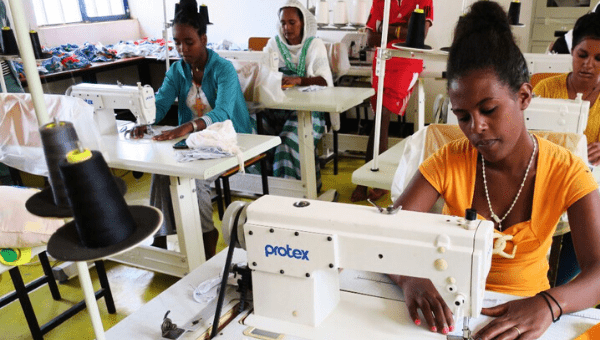
JRS in Ethiopia began in 1982 assisting people displaced by the Ethiopia-Somalia War and later by the Wallega Famine in 1984-85. Since the mid-1990s, JRS has supported refugees in Addis Ababa as well as refugees in camp settings. JRS currently works in the Mai-Aini and Adi-Harush camps in the Tigray Region (which host refugees from Eritrea), Melkadida and Kobe Camps in Somali Region (which contain Somali Refugees), and Addis Ababa urban refugees from both countries.
The Covid-19 pandemic has severely affected JRS Ethiopia’s usual range of humanitarian support to communities who are in an acutely vulnerable position, due to their refugee status. JRS Ethiopia’s operations include a wide range of humanitarian services. Its priorities are – Education, Psychosocial Support, Livelihoods, and Peace and Stability. Most of its programme interventions are specifically designed to provide effective protection and basic services to the most vulnerable refugees including unaccompanied and separated children, youth and adolescent girls, and vulnerable women.
The declaration of a national state of emergency by the government of Ethiopia to prevent the spread of Covid-19 has impeded and in some cases suspended movement in the country which makes it challenging for JRS to continue its work in the refugee camps and in Addis Ababa. The most immediate need for refugee communities is emergency food aid and the provision of protection supplies to prevent Covid-19 infection.
Funding from the IJI and Misean Cara grant is enabling JRS Ethiopia to undertake an awareness-raising campaign about Covid-19 through telephone, SMS messages & social network platforms. JRS-Ethiopia Roving Outreach Workers are trained in how to educate the Refugee Community Leaders about the modes of infection and transmission of COVID-19 virus. It is erecting billboards with key information messages from the WHO in refugee camps to influence community behavior in response to the pandemic.
The team is giving the communities sanitation materials and face masks as well as using refugees to produce the masks, to provide them with some income. Basic food items including spaghetti, sugar and cooking oil is being given to refugee households in Addis Ababa who are the guardians of 100 unaccompanied and separated refugee children – a particularly vulnerable group.
With thanks to JRS Ethiopia

